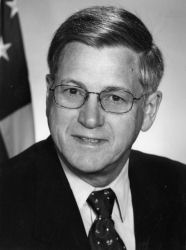A Quote by Jeff Duncan
It's perfectly reasonable for someone to be hesitant to share their personal information with the government. The Census Bureau shouldn't be forcing anyone to share the route they take their kids to school or any information other than how many people live in their home.
Related Quotes
We have to remember that information sharing is restricted by legal barriers and cultural barriers and by the notion that information is power and therefore should be hoarded so if you share information you can extract something in exchange. In today's digital online world, those who don't share information will be isolated and left behind. We need the data of other countries to connect the dots.
As many of my colleagues know, TikTok, like other Chinese companies is required under Chinese law to share information with the government and its institutions. There are real concerns that this app could also collect information on users in the United States to advance Chinese counter-intelligence efforts.
I don't think we should have less information in the world. The information age has yielded great advances in medicine, agriculture, transportation and many other fields. But the problem is twofold. One, we are assaulted with more information than any one of us can handle. Two, beyond the overload, too much information often leads to bad decisions.
The actual assertion that the Census Bureau could behave in such a way as to tilt things one way or the other way in the partisan sense, is, on the face of it, a silly charge. It's the same Census Bureau that's considered to be incompetent by some people, and then some of the same people are saying that this incompetent agency is so clever and so Machiavellian that it can design a census for partisan reasons.
If you share information widely, but you present that information in ways that fits your own view, you're actually still misrepresenting. So instead what you should do is figure out ways to build systems that allow people to experience and classify their information in ways that are meaningful for them.

































